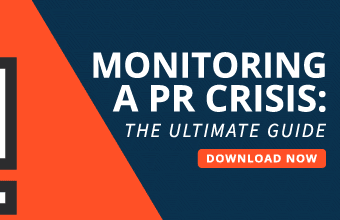When the history of PR crises is written, February 9, 2021, will certainly be a day that will be highlighted.
On that day, news stories covering three major facets of American society—business, sports and politics—made headlines, despite the best efforts of PR crisis specialists, when all that was necessary to stop the bleeding was to tell the truth.
The subjects of the stories were Boeing, the Super Bowl and the Senate impeachment trial of former president Trump:
Boeing
 For years I’ve said that once an entity or individual has had a PR crisis, it is embedded in its DNA and coverage of the crisis can resurface any time. The lead story in the Business & Finance section of the Wall Street Journal on February 9 was headlined ‘Boeing Board Draws Fire on CEO.’
For years I’ve said that once an entity or individual has had a PR crisis, it is embedded in its DNA and coverage of the crisis can resurface any time. The lead story in the Business & Finance section of the Wall Street Journal on February 9 was headlined ‘Boeing Board Draws Fire on CEO.’
The article detailed a shareholders’ suit alleging that Boeing directors “failed to challenge Mullenburg on post-crash media plan” regarding the safety of the 737 MAX or his PR campaign to counter negative coverage of two fatal crashes that resulted in 346 deaths. The article contained new information that was previously redacted as the result of a WSJ request.
Sports
Sports marketers of the Super Bowl, even though they will probably deny it, have to be disappointed that the ratings for the game on CBS were the lowest since 2007, when the Indianapolis Colts played the Chicago Bears. The game was watched by 96.4 viewers, far below the usual 100 million viewers predicted.
 The National Football League also had to be disappointed as its attempt to camouflage its past transgressions regarding health, racial inequity and forgiveness of its past and current players of multiple legal problems were reported prior to and after the game.
The National Football League also had to be disappointed as its attempt to camouflage its past transgressions regarding health, racial inequity and forgiveness of its past and current players of multiple legal problems were reported prior to and after the game.
A full-page story by Ken Belson in the February 9 New York Times detailed the NFL’s attempt to camouflage its sordid history.
In part wrote Belson, “The N.F.L. espoused racial unity and praised health care workers. But its inaction on racial diversity, its stereotypic imagery and its decision to host a potential superspreader event said something different.” When it comes to topics like race, health and safety, the league’s certainty dissolves into a series of mixed messages, read the article.
(In my opinion, the pre-game telecast lead-up to the actual game seemed more like a sermon on brotherhood than a football game. Honoring Covid-19 heroes and urging Americans to heal their political divides, worthy as they are, seemed more like a PR attempt of an entity to erase its bad conduct rap sheet and reimagining itself as a good corporate citizen.)
In addition, there were numerous print, radio and TV stories reporting that health officials feared that Super Bowl parties and celebrations will result in an accelerated outbreak of Covid-19.
Politics
 February 9 was also the day that the Senate trial of former president Trump began. For months TV and print news reports detailed the remarks from Trump about a stolen election, which many observers said led the storming of the Capitol on January 6.
February 9 was also the day that the Senate trial of former president Trump began. For months TV and print news reports detailed the remarks from Trump about a stolen election, which many observers said led the storming of the Capitol on January 6.
Unlike the negative Boeing and Super Bowl coverage, which affect Boeing investors and sport marketers and might result in academic investment and marketing studies, Trump’s PR crisis will end up in history books as an attempt to derail American democracy.
There is one very important lesson that PR people should remember from the above: All three crises could have been prevented or shortened by telling the truth.








